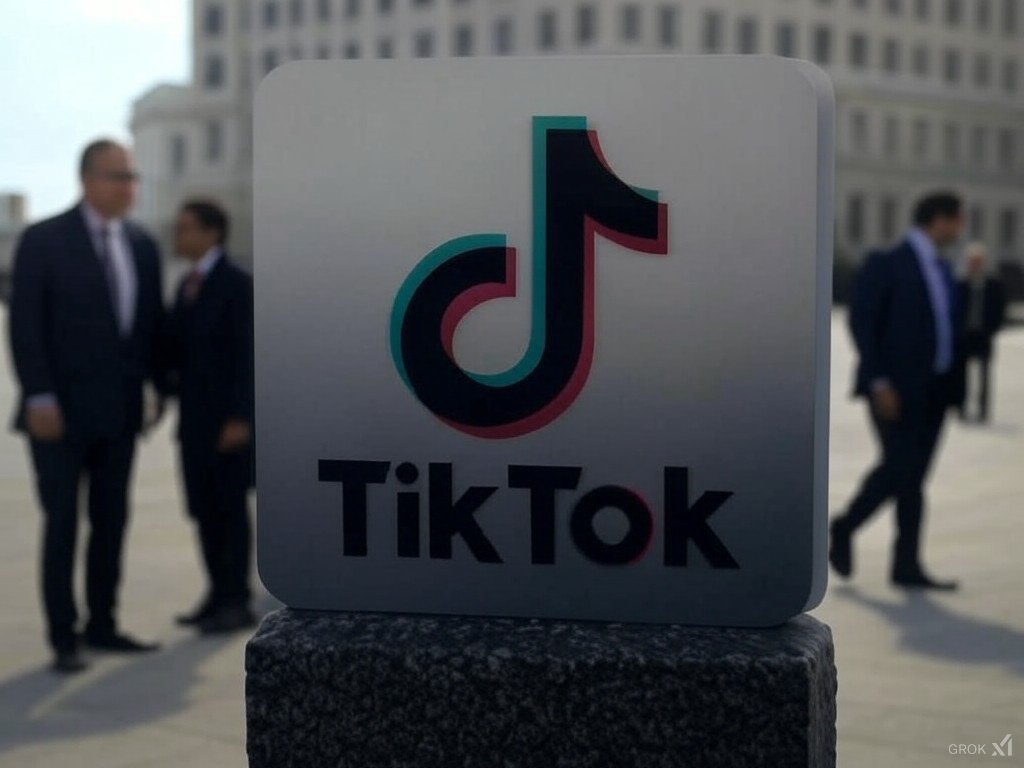The TikTok Ban: Unpacking Its Impact on American Users and the Political Climate
In a significant move that has sent shockwaves through the digital landscape, TikTok has officially gone dark in the United States following a government ban. This development raises critical questions about the future of social media in the country, the implications for its vast user base, and the underlying political dynamics that led to this controversial decision.
Background of the Ban
The ban stems from heightened concerns regarding TikTok’s ties to the Chinese government. Lawmakers have expressed fears that the data collected by the app could be accessed by Chinese authorities, posing a potential threat to national security. In response to the ban, TikTok has vehemently argued that the legislation infringes upon the free speech rights of the approximately 170 million American users who rely on the platform for entertainment, education, and social interaction.
Former President Donald Trump has indicated that he will intervene upon taking office, stating, “I will give TikTok a 90-day reprieve once I take office on Monday.” This statement has added a layer of complexity to the situation, suggesting that the app may not remain permanently banned.
Understanding the User Base
With 170 million users in the United States alone, TikTok has cultivated a diverse community that spans various demographics. From teenagers sharing dance challenges to small businesses leveraging the platform for marketing, TikTok has become an integral part of American culture. The app’s algorithm, which curates content based on user preferences, has set it apart from other social media platforms, making it particularly addictive and engaging.
The abrupt ban has left many users in a state of confusion and frustration. Content creators who have built their careers on the platform are now facing the prospect of losing their primary source of income and audience engagement. This situation highlights the broader issue of digital dependency in the modern age, where platforms like TikTok have reshaped how people communicate and consume content.
The Political Ramifications
The TikTok ban is not merely a technological issue; it is deeply intertwined with the current political climate. The decision reflects growing tensions between the United States and China, particularly in the realm of technology and data security. The Biden administration has taken a more cautious approach toward Chinese tech firms, focusing on transparency and accountability in data practices.
Furthermore, this situation has sparked debates about governmental overreach, digital rights, and free speech. Advocates for digital rights have argued that the ban sets a dangerous precedent for censorship and may lead to further restrictions on other platforms. The implications of this ban extend beyond TikTok, raising questions about the balance between national security and individual freedoms in the digital age.
What Does This Mean for the Future of Social Media?
The TikTok ban could signal a shift in how social media platforms are regulated in the United States. If the ban is upheld, it may encourage other countries to impose similar restrictions on platforms they deem to be security risks. This could lead to a fragmented digital landscape where users must navigate a patchwork of regulations, potentially stifling innovation and global connectivity.
Moreover, the ban may prompt American tech companies to reevaluate their data practices and security measures. As public awareness of data privacy grows, companies may feel pressured to adopt more stringent safeguards to protect user information and maintain consumer trust.
International Reactions
The ban has also attracted international attention, with observers noting the potential for heightened tensions between the U.S. and China. Experts warn that the decision could exacerbate existing trade disputes and diplomatic challenges, further complicating the already fraught relationship between the two superpowers. The global tech landscape is closely watching how this situation unfolds, as it may set a precedent for other nations grappling with similar concerns over data security and foreign influence.
Conclusion
The ban on TikTok in the United States marks a pivotal moment in the intersection of technology, politics, and culture. As the app goes dark for millions of users, the implications of this decision resonate far beyond the digital realm. It raises critical questions about data privacy, national security, and the future of social media in a rapidly evolving global landscape. As we await further developments, one thing remains clear: the conversation surrounding digital rights and the role of government in regulating technology is far from over.




